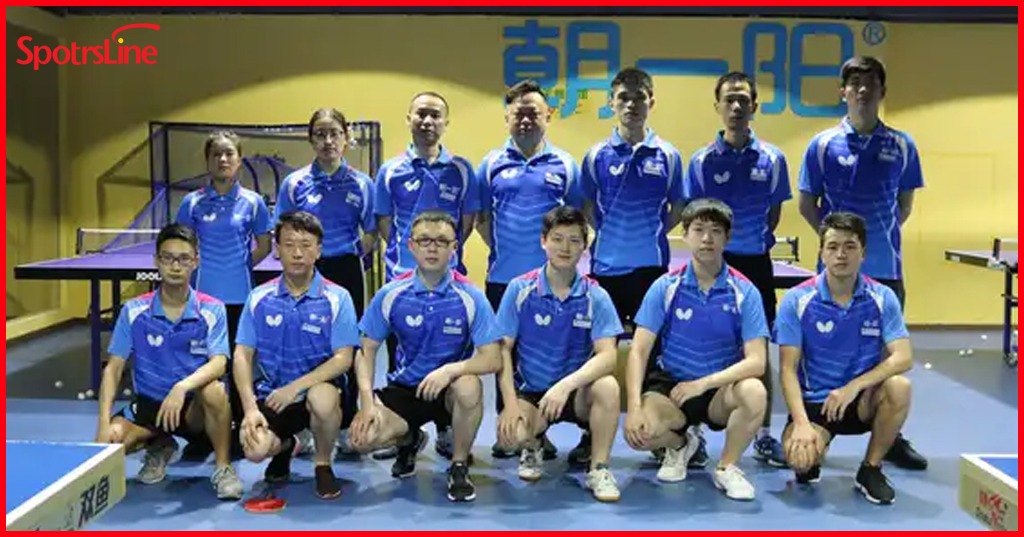
Amateur table tennis needs to avoid these blind spots
Some people say that basic skills are the easiest, and there are no blind spots. Just practice! This is wrong. Basic skills do have blind spots.
Take forehand attack as an example. Many people are relatively smooth in the rising period and the high point period and can hit many of them, but they are not so good in the declining period. They can only hit a few of them, and either they go into the net or out of the table.
Amateur players do not have a deep understanding of rubbing the ball and think that rubbing the ball is simply to “shovel” the ball over. In fact, there are many mysteries of rubbing the ball, rubbing long or short, rubbing fast or slow, rubbing with rotation or without rotation. If you master all these, you will have more opportunities to attack and the ball will become more clever.
Basic skills cover all aspects. When amateur golfers reach a certain level, their skills improve very slowly because they are limited by their basic skills.
1. Technical Blind Spots
Technical blind spots are the decisive factors that affect players’ actual performance. The less technical skills they master, the more technical blind spots they have and the fewer means of attack they have.
For example, if you have good offensive skills but lack defensive skills, it is impossible for you to always attack and the opponent to defend in a game. A player who can attack and defend, know everything, and learn everything may make slow progress at the beginning, but in the long run, the performance of a player with comprehensive skills will be better than that of a player with monotonous skills.
Some people say that I don’t think so, “There are many people who rely on one trick to make a living!” I have also met many golfers who have “one trick”. I believe that many people, like me, have also encountered the fierce “one trick”. In fact, it is not difficult to crack the “one trick”.
To crack a ” one -trick” strategy, you need to use your brain. Don’t be confused when you are attacked by two goals. You need to remain calm. After all, the technique of “one-trick” is very monotonous. You need to rely on changes to win. You need to mobilize it and make it uncomfortable. Otherwise, “one-trick” will lose its inherent power.

2. Tactical Blind Spots
Tactics, for us amateur players, are actually very simple. They require us to use our brains to play, not to play stupid shots, but to use our brains and think more. Arrange tactics with the camera, and as long as the tactics are effective, we must resolutely implement them. Of course, this tactic is based on technology. Without technology, there is no point in talking about tactics.
The most common type of player is the one who, during a match, does not think at all and just serves the ball. They always serve the same type of ball, which at most spins or does not spin. This is a tactical blind spot, and this type of player is tactically blind.
3. Physical Blind Spots
Whether physical fitness is good or not is not measured by the time you play. The physical energy consumed by looping and fast attacking is definitely different. Of course, this excludes serious defects in looping technique and unreasonable force that lead to exponential consumption of physical energy. In many cases, what amateurs call “having the upper hand but not being able to score” is exactly this situation. They play with great vigor and vitality but waste their physical energy.

4. Psychological Blind Spots
Psychological blind spots, this is something many people may feel.
Some people say that my mental quality is too poor and I get nervous when I play. This is too common. I usually play very well, but I can’t play when I play. I keep sticking my butt out and rubbing the ball that is more than half a meter high. This is not a poor technique, but a poor mental quality.
I’ll tell you a very amateur solution. Try to get yourself excited. You can shout, scream, jump, and hop appropriately, and constantly remind yourself to relax appropriately. Of course, you can’t get too excited. Excessive excitement can easily lead to rough and quick success mistakes, which is also undesirable.
If you are appropriately excited and appropriately relaxed, half of your nervousness will be eliminated. Playing more games is a good way to improve your psychological quality.
In addition, the mentality of each game and each score is different. When you are leading by a large score, remember not to “relax”. There are many examples of people leading by a large score of 9 to 2 or 10 to being overturned. You must remember that even if you are 10 to 1, you still have one point left, but you haven’t won yet!
After you understand these skills, you still need to practice more. After all, practice is the only criterion for testing truth. If you are a relatively young child, when you first start learning table tennis, you still need the guidance of a professional coach, so that you can lay a solid foundation from the beginning. At Chaoyiyang Table Tennis Training Center, after the guidance and teaching of the coach, the students can also practice with other students to understand and consolidate the skills they have just learned in actual combat.

